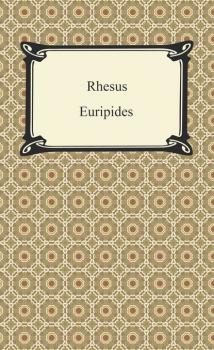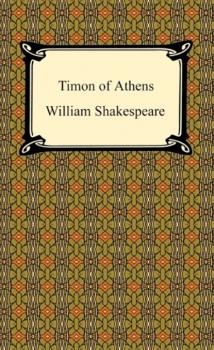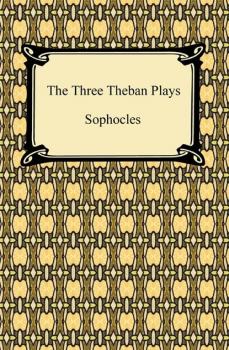Античная литература
Различные книги в жанре Античная литератураRhesus
Though little is known for certain of his early life, Euripides was probably born around 460 b.c.e. to the farmer Mnesarchus and his wife Clito, and his studious nature quickly led him to a literary life in Athens. Euripides turned to playwriting at a young age, achieving his first victory in the dramatic competitions of the Athenian City Dionysia in 441 b.c.e. He would be awarded this honor three more times in his life, and once more posthumously. His plays are often ironic, pessimistic, and display radical rejection of classical decorum and rules. Together with Aeschylus and Sophocles, Euripides would provide the canon of Greek tragedy and thereby lay the foundation of Western theatre. «Rhesus» takes place during the Trojan War, and, as in book 10 of Homer's «Iliad», depicts the night when Odysseus and Diomedes sneak into the Trojan camp. There has been some debate as to the authorship of «Rhesus», but modern scholars believe Euripides to be the correct author.
Helen
Though little is known for certain of his early life, Euripides was probably born around 460 b.c.e. to the farmer Mnesarchus and his wife Clito, and his studious nature quickly led him to a literary life in Athens. He turned to playwriting at a young age, achieving his first of five victories in the dramatic competitions of the Athenian City Dionysia in 441 b.c.e. His plays are often ironic, pessimistic, and display radical rejection of classical decorum and rules. Together with Aeschylus and Sophocles, Euripides provided the canon of Greek tragedy and thereby laid the foundation of Western theatre. «Helen» is a drama which follows an alternative myth of Helen of Sparta after the fall of Troy. It begins with the premise that Helen did not run off to Troy with Paris, but was actually stolen away to Egypt by the gods and replaced by a phantom look-alike in Troy.
Timon of Athens
Often regarded as one of the more difficult of Shakespeare's plays to categorize, «Timon of Athens» eclectically contains elements of comedy in its satire as well as components of tragedy in Timon's allegorical downfall and death. The play depicts Timon as an enormously wealthy man who gives away his possessions to a large number of false friends. When he himself is in need, all of them turn their backs on him, and the result is Timon's savage embitterment and raging seclusion. Considered one of Shakespeare's more challenging works, it is now largely believed to be due to Thomas Middleton's collaborative writing. A worthy play of Shakespeare's canon, «Timon of Athens» is compelling to this day in its intense and unrelenting position on greed and corruption in society.
Cymbeline
Surrounded by historical myth and intrigue, Shakespeare's «Cymbeline» weaves an elaborate tale of palatial envy and power. Cymbeline, King of Britain, commands the wedlock of his lovely daughter Imogen to Cloten, the son of the Queen by a former husband. With her passionate eyes set upon the poor yet heroic Posthumus, Imogen refuses. Disgusted at the prospect of his daughter marrying a lower class citizen, Cymbeline banishes Posthumus from Britain. With death and deceit between them, Imogen and Posthumus tread international waters in an attempt to be reunited. First performed as early as 1611, Shakespeare's «Cymbeline» remains a highly playful yet tragic depiction of young love.
Julius Caesar
William Shakespeare's «Julius Caesar» is the first of three Roman history plays that Shakespeare would write. Closely based on actual events as chronicled in Plutarch's «Lives», it is the story of the tragic downfall of Julius Caesar and of those who conspire against him. At the beginning of the play it is feared that Julius Caesar wishes to make himself the King and thus dictator of Rome. From this fear a plan to kill him is hatched. Some of Shakespeare's most memorable lines can be found here in what is considered by many to be one of the greatest tragedies ever written.
King John
"King John", a historical play by William Shakespeare, recounts the events of King John's reign of England during the late twelfth and early thirteenth centuries. The play opens at the English court of King John. Richard I is killed by a man named Austria. Richard I's widow, Constance, projects that Arthur, Richard I's son should inherit the throne. When the king of France, Phillip becomes involved with appointments to the crown, a tumultuous series of alliances, betrayals, and murders follow.
The Three Theban Plays
One of the most famous poets from classical antiquity, Sophocles was one of three important ancient Greek tragedians, the others being Aeschylus and Euripides. Writing during the 5th century BC, Sophocles created some one hundred and twenty three plays during his lifetime, of which only seven have survived in their entirety. In this edition are included the three so-called Theban plays, as translated by Francis Storr, which are widely considered his most important works. These works include «Antigone» the story of its title character, a strong heroine whose complete commitment to familial duty brings her to challenge the will of her king; «Oedipus the King», the legend of Oedipus who is exiled as an infant by his royal father because of a prophesy of patricide and incest; and «Oedipus at Colonus», a drama which finds Oedipus at the end of his life caught between the warring kings of Athens and Thebes who each desire that Oedipus' final resting place be in their respective lands. These classic tragedies are essential reading and their influence on modern literature and drama is a profound one.
The Complete Plays
This comprehensive compilation of Aristophanes' texts, «The Complete Plays of Aristophanes» contains eleven unique stories all penned by the famously witty Greek playwright. His works are also important because they are some of the last remaining forms of Old Comedy in existence. The plays are filled with all kinds of satire, ranging from politics and sex to the humorous portrayals of popular Greek figures. «The Clouds» depicts the philosopher Socrates as a sneaky old man with a penchant for stirring up discontent and mischief. In «Lysistrata,» the women of Greece refuse to give their husbands sex unless they re-think their stance in the Peloponnesian War. «The Frogs» shows that the Greek god Dionysus bumbling around the Underworld because he misses the older and more tragic plays over the newer tongue-in-cheek ones. Aristophanes appreciated the more tragic plays, but he refused to let himself take them too seriously. He believed that the audiences needed something more in their lives than solemn tales about the Greek gods, so he made them laugh with his sarcastic and sardonic humor. He was also influential in that he revised the role of the classic Greek chorus; most choruses were only present in the tragedies; however, he doubled the number of chorus singers and made them the voice of humorous reason amidst the comical confusion. As such, Aristophanes is remembered and praised by critics and audiences alike.
Beautiful Stories from Shakespeare
During her career popular children's writer Edith Nesbit collaborated on over sixty books of fiction for children. In «Beautiful Stories from Shakespeare» she turns her attention to a series of interpretations of William Shakespeare's works. These retellings of Shakespeare's plays are written in a way that can be easily understood by and entertaining to young readers. «Beautiful Stories from Shakespeare» includes a short biography of Shakespeare, a pronunciation guide, a list of famous quotations, and retellings of the following plays: «A Midsummer Night's Dream,» «The Tempest,» «As You Like It,» «The Winter's Tale,» «King Lear,» «Twelfth Night,» «Much Ado About Nothing,» «Romeo and Juliet,» «Pericles,» «Hamlet,» «Cymbeline,» «Macbeth,» «The Comedy of Errors,» «The Merchant of Venice,» «Timon of Athens,» «Othello,» «The Taming of the Shrew,» «Measure for Measure,» «Two Gentlemen of Verona,» and «All's Well That Ends Well.»
Titus Andronicus
Widely accepted as Shakespeare's earliest tragedy, «Titus Andronicus» is the bloody story of a Roman general engaged in terrible revenge with the Queen of the Goths, Tamora. The play begins with Titus returning to Rome after ten years of fighting. He brings with him the defeated Tamora, Queen of the Goths, and her sons. Titus sacrifices one of Tamora's sons to avenge the sons he lost in the war, which begins a cycle of revenge in which Tamora and her lover Aaron the Moor plot and scheme against the remaining children of Titus. This entails especially horrific results for his daughter Lavinia, whose fate is thought to be based on a mythological story in Ovid's «Metamorphoses» about Procne and Philomela. The conclusion is full of further violence and death, with few characters remaining to tell the tragic story of Titus and his children.









